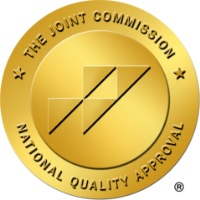What Is Dialectical Behavior Therapy (DBT)?
DBT is an evidence-based treatment that combines mindfulness techniques with behavioral strategies to help individuals manage distress effectively. That’s why DBT therapy in Massachusetts emphasizes a balance between acceptance and change, and consists of four key components that target specific skills.
Based on cognitive behavioral therapy principles, DBT is best for individuals who have trouble managing their emotions, which is commonly seen in conditions such as borderline personality disorder, depression, or post-traumatic stress disorder. DBT programs in Massachusetts work by teaching people how to accept difficult feelings while also learning to change them. It’s based on the theory of a dialectic, which is the idea that two things that seem like opposites can actually be true. So, instead of thinking in black and white terms, you find a balance between acceptance and change.
For instance, if you are working on a difficult project at work, you may feel frustrated and exhausted, but at the same time, you want to succeed. Therefore, the dialectic is, “I am doing the best I can” and “I need to keep working to improve.” These two ideas might seem contradictory, but they both can be true. Most DBT programs last about six months and involve a combination of group and individual therapy.
The Four Pillars of DBT

DBT includes a huge number of therapeutic techniques and skills, which are all aimed at helping people with various mental health issues. Here are the four modules that are used in dialectical behavior therapy in Massachusetts:
Mindfulness
Mindfulness refers to being fully present in the moment without judgment. This helps individuals become aware of their thoughts, emotions, and physical sensations, making it easier to respond thoughtfully rather than act impulsively. It also involves observing your feelings without labeling them as good or bad.
Distress Tolerance
Distress tolerance teaches individuals how to cope with difficult situations or emotional pain in healthy ways rather than resorting to harmful behaviors. It’s helpful because it encourages you to accept the reality of the moment rather than trying to change it.
Emotion Regulation
This practice involves identifying, understanding, and managing emotions more effectively, reducing emotional volatility. One of the techniques used involves labeling your emotions so that you can address them more effectively. For example, you might think you are feeling angry when, in reality, you are feeling disappointed and let down.
Interpersonal Effectiveness
Interpersonal effectiveness focuses on developing healthy relationships and learning how to communicate your needs and boundaries effectively. You will also learn assertiveness skills so that you can navigate conflict in healthier ways while maintaining respect for yourself and others.
Do You Qualify for Mental Health Treatment in Massachusetts?
East Point Behavioral Health provides specialized mental health care in Massachusetts for adults aged 18 and older. While we do not specialize in substance use disorders (SUD), we address co-occurring conditions and can connect you with trusted SUD treatment referrals if needed. Our mission is to remove barriers to mental health care by offering immediate intervention and prompt access to treatment. Contact us today to start your journey toward mental wellness!

Why Dialectical Behavior Therapy Matters
DBT works well alongside other therapies, such as Cognitive Behavioral Therapy, which focuses on logic and critical thinking, while DBT emphasizes mindfulness and acceptance.
This type of therapy is important for the following reasons:
Evidence-Based and Effective
DBT has been studied for a long time and has proven to be effective for a wide range of mental health disorders, including borderline personality disorder, depression, and post-traumatic stress disorder. As a result, individuals have a reduction in suicide attempts, psychiatric hospitalization, and emergency room visits in a 12-month period.
For Different Age Groups
DBT is effective for many different age groups, including children, teens, and adults. DBT can be appropriate for children as young as 6 years old, though they may lack the cognitive skills needed for effective treatment. It can also be helpful for adolescents, particularly those with a history of suicide attempts, self-harm, or substance use behaviors. On top of that, DBT is also effective for adults, including older adults.
Practical Skills for the Real World
It’s important that the skills learned here can be applied to everyday situations. Fortunately, DBT therapy in Massachusetts prepares individuals for everyday living so that they can be involved in more social settings, manage their relationships better, and develop greater self-acceptance.

Why Choose DBT at East Point Behavioral Health?
At East Point Behavioral Health, we offer DBT therapy in Massachusetts as part of a comprehensive and compassionate treatment approach. Our licensed clinicians are trained in DBT and understand how to apply its techniques to a range of mental health challenges beyond borderline personality disorder, including anxiety, depression, PTSD, and emotional dysregulation.
Clients choose us because we emphasize personalized care. We don’t believe in one-size-fits-all solutions. Instead, we tailor DBT strategies to each person’s needs, helping them build practical skills for managing distress, improving communication, and setting healthier boundaries.
We also understand the importance of accessibility. That’s why we provide online DBT for emotional regulation to clients both in Massachusetts and out of state. This flexibility allows more people to get the consistent support they need, wherever they are.
Who Can Benefit From DBT Therapy in Massachusetts?
Because DBT is highly adaptable, it works for many different people with various mental health concerns. The people who benefit most from this type of therapy are those with:
Comprehensive Treatment Options Using DBT
DBT isn’t just a standalone treatment; it can be incorporated into different treatment options and used alongside other therapies like Cognitive Behavioral Therapy and holistic mental health treatment. Here are some ways DBT can be incorporated into treatment options:
Group Therapy
DBT group therapy programs in MA provide a supportive setting where individuals facing similar struggles can practice various dialectical behavior therapy skills, such as observing thoughts and emotions without judgment and communicating with others in a way that is respectful and assertive. After putting these skills of client centered group therapy into action, members can provide feedback.
Individual Therapy
Individual counseling offers a personalized, one-on-one, solution focused therapy where clients get to explore the harmful behaviors that are making their lives and relationships with others harder. During the individual sessions, clients work with their therapist to practice skills, review difficult situations, and solve problems.
Family Therapy
Family therapy involves loved ones in the process, as individuals with positive home environments tend to have the best outcomes. Members can work on improving their own communication skills to better understand their loved one’s condition and create a strong support system.
Medication Management
In some situations, medication management for mental health may be used alongside DBT to improve symptoms. When mental health symptoms are managed, it makes it easier to focus on getting better. East Point Behavioral Health has professionals to help manage your medications, if needed.
Do I Qualify for Intensive Outpatient Services in Massachusetts?
At East Point Behavioral Health, we provide personalized mental health care in Massachusetts for adults aged 18 and older. Our Intensive Outpatient Services (IOS) are ideal for those stepping down from inpatient hospitalization or seeking more structured support than traditional outpatient care. With a focus on immediate intervention and compassionate treatment, we ensure you receive the help you need when you need it most. Contact us today to take the first step toward mental health recovery.

Online DBT Therapy for Accessible, Flexible Care
Our online DBT program includes weekly individual therapy sessions and group skills training, conducted via secure video conferencing platforms. These sessions are designed to help clients manage intense emotions, cope with challenging situations, and improve relationships. Additionally, between-session support is available to assist clients in applying DBT skills in real-time situations.
Benefits of virtual DBT therapy include:
- Accessibility: Online therapy removes geographical barriers, making it easier for clients to access care regardless of their location.
- Flexibility: Clients can schedule sessions at times that fit their routines, reducing the need for travel and time off work.
- Comfort: Participating in therapy from a familiar environment can enhance openness and engagement.
- Continuity: Virtual sessions ensure consistent treatment, even when in-person meetings are not feasible.
Research indicates that online DBT is as effective as traditional in-person therapy for treating various mental health conditions, including borderline personality disorder, depression, anxiety, PTSD, and substance use disorders.

Is DBT Right for You? Get Started in Massachusetts
Whether you need help managing emotions, improving relationships, or handling difficult situations, East Point Behavioral Health is here for you with our specialized DBT therapy in Massachusetts. Contact us today at 877-536-5307 to start your journey toward a better life with virtual or in-person DBT therapy. Our therapists near Boston are here to help!
Frequently Asked Questions
What’s the difference between DBT and CBT?
CBT focuses on changing unhelpful thoughts and behaviors. DBT builds on that by also teaching emotion regulation, mindfulness, and interpersonal skills. DBT is especially useful for managing intense emotions and behaviors.
Is DBT therapy in Massachusetts suitable for people without a mental health diagnosis?
Yes. Many people benefit from DBT even without a formal diagnosis. The skills taught can help with stress, relationships, and emotional regulation.
How do virtual DBT sessions work at East Point Behavioral Health?
We offer weekly video sessions, both individual and group-based. You’ll learn practical skills, receive guidance, and apply techniques between sessions.
Can I receive DBT therapy in Massachusetts and medication management together?
Absolutely. We coordinate care between therapists and prescribers to ensure that therapy and medication support each other.
What should I expect in a typical DBT group session?
Group sessions are structured and skills-based. You’ll learn strategies like mindfulness, emotional regulation, and distress tolerance in a supportive, guided setting.






